Free from is one of the fastest growing sectors in the UK baking industry, with innovations continuing at pace to meet increasing demand from consumers.
Top line data for the ambient bakery category has sales of free-from products accounting for just £287m of the £8bn market [Kantar, 52 weeks to 20 April 2025] but growing by almost triple the rate of non-free-from items with year-on-year growth of 9.4% versus 3.2%, respectively.
Glancing at volumes, free-from bakery sold 6.3% more packs than last year while overall bakery suffered a slight dip. Both sectors saw inflation push prices up by around 3%, with free from remaining by far the more expensive option at an average of £2.49 per pack compared to £1.39 for standard bakery (although there are a few reasons why this is the case).
Overall, this means that UK consumers spent £24.7m more on free-from bakery than the year prior. So, what is driving this spending surge?
For starters, Brits in their millions are demanding more diet-friendly products. A survey by Doves Farm Foods from February 2025 found that more than one in five are now avoiding gluten, milk, nuts, egg, or soya.
Notably, the Kantar data accounts for all free from ambient bakery goods, including gluten free and vegan products , but it’s worth noting that gluten-free products command the lion’s share, attracting three times more consumers than vegan-friendly ones in the UK. They appear to be pulling further ahead too, with offerings that are solely gluten free up by 5.5% year-on-year [Nielsen data for the 52 weeks to 11 January 2025] whereas plant-based, free-from ranges declined by 2.4%.
Shaping the aisles
Bread and morning goods are leading the charge in the “thriving” gluten-free category, says Charlotte McCready, category manager at bakery manufacturer Finsbury Food Group. “These products are selling fast and often struggle to stay on shelves, showing strong demand,” she asserts.
“The category itself has seen 8.9% value growth and 7.8% volume growth year-on-year, proving that more shoppers are buying into gluten-free options,” adds McCready, referring to Kantar WPO data for Dec 2024 vs Dec 2023.
Driving this growth is a “virtuous circle” of increasing demand – from both coeliacs and health-conscious consumers – and greater visibility on shelf with one factor feeding into the other, expresses Jack Helm, business development manager at ingredients supplier ACI Group. “Forecasters predict a CAGR of between 6% and 13% by 2033, depending on which analysis you listen to,” he says, highlighting increased awareness of gastrointestinal health as another contributing factor.
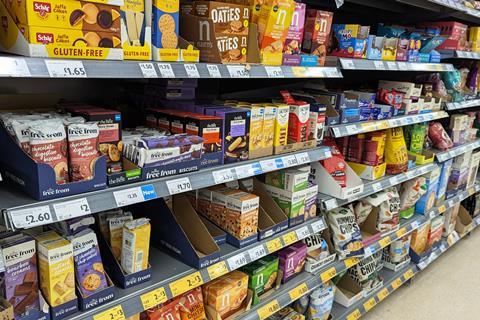
Supermarket retailers are doing their part to support and tap into this upwards trajectory. “We are really pleased to see a greater emphasis on expanding the offering in free from to cater to a needs-based audience,” asserts Lauren Harber, head of marketing at gluten-free bakery brand Genius Foods.
Harber points to initiatives from the likes of Aldi, which recently launched its first dedicated Free From section, and Sainsbury’s and Morrisons, which have a “one-stop shop in aisle across ambient, chilled, and frozen”. She warned, though, that the positive steps in expanding choice for free from shoppers can sometime lead to confusion, with “consumers believing that all products in the free from fixture will be gluten free for example, as this was once the case”.
One thing gluten-free bakery is doing well is continuing to expand beyond the core ambient fixture. “The chilled aisle is now the fastest growing area – up 6.9%,” comments White Rabbit Pizza co-founder Nick Croft-Simon, looking at Nielsen data for the 12 weeks to 11 January 2025. He notes growth in frozen fixtures too, driven by gluten-free savoury meal offers like pizza.
Indulgent impulses
As alluded to previously, gluten-free is more expensive than standard bakery due to it requiring a larger number of ingredients, usually to ensure a similar level of taste and texture, among the factors. “This makes affordability a challenge, so brands need to work hard to balance high quality with fair pricing,” declares McCready at Finsbury.
It’s even more challenging with the impact of inflation – the cost-of-living crisis forcing shoppers, including those buying gluten-free bakery, to eat more at home. However, many are choosing to treat themselves to a little trade up. “The key is to offer products that cover a variety of different need states,” maintains Jacs Edwards, senior development manager at Baker & Baker. “A brownie is great with a coffee as a mid-morning pick me up but it’s an entirely different product when heated up with a scoop of ice cream after dinner,” he says.
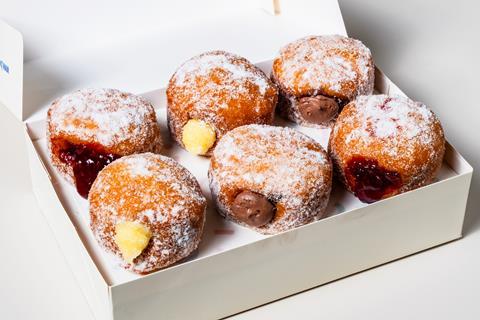
Borough 22 Doughnuts is one of the gluten-free brands that is well positioned for the growth in treat-based foods, with founder Ryan Panchoo reporting “a lot of activity” since launching a concession at Selfridges in London last November. The health food side of free from is not in decline, he thinks, but it’s slowing down a bit. “It’s been quite common to link free from with healthy food, but there is a big market for food that tastes great and happens to be free from: doughnuts, pizzas, viennoiserie and more,” adds Panchoo.
Healthy discussions
The UPF debate continues, and gluten-free bakers will be wary of some consumers perception of products with a lot of ingredients, particularly ones not deemed to be from a ‘store cupboard’.
“There is still a lack of clarity and miscommunication over which ingredients are considered a UPF, but it remains at the forefront of considerations for manufacturers, especially in free from where functionally, many of the ingredients are pivotal,” says Edwards at Baker & Baker.
While it may be relatively easy for consumers to get on board with the various alternatives to wheat flour – rice flour, tapioca starch, potato starch, buckwheat flour etc – awareness on the use of binding agents like xanthan gum and psyllium husk may take more time.
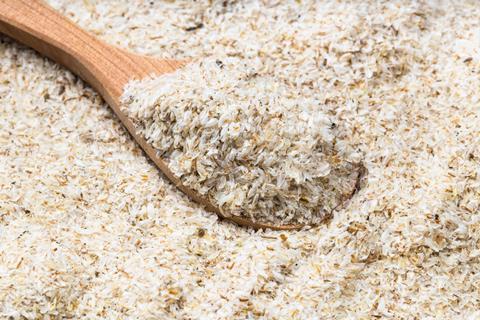
A chance, instead, can be through claims of natural, organic and additive-free bakery. “There is currently a focus on artisan-style bread and natural-looking products as we see shoppers wanting to move away from the ultra-processed, vacuum-packed feel of early gluten-free foods,” comments Finsbury’s McCready.
There is also a growing preference for products made with sustainably sourced ingredients, notes Sue Fleming, director at The Gluten Free Kitchen, which almost doubled its sales since moving to a larger site in North Yorkshire last year. “This is part of a broader trend towards environmental consciousness and ethical consumption,” she adds.
Soy lecithin is a commonly used emulsifier in gluten-free baking, and the importance of soya’s responsible sourcing is gaining traction with consumers. But such ingredients come at a premium, with Mintel’s 2023 report on attitudes towards gluten/wheat free foods finding this can be prohibitive to those choosing to avoid gluten for lifestyle reasons.
Nevertheless, “Mintel says that future expansion of the sector will focus on the importance of strong green credentials than simply being ‘free-from gluten,” highlights Jacqui Passmore, Marketing Lead West EU & AMEAP at Dawn Foods.
New SKUs on the block
Retailers are beginning to stretch NPD further than simply replicating the bestsellers.
Baker & Baker’s Edwards singles out the recent new launches in Waitrose as being really exciting and offering “something different to both the rest of the Free From market as well as their core bakery offering”. Among the newcomers rolled out at its stores are sandwiches, rolls, cakes, flapjacks, and cookies.
Meanwhile, brands have helped mark Coeliac Awareness Month by contributing to a raft of gluten-free NPD featuring the likes of biscuits, wafers, macaroons, traybakes, crackers, and burger buns. Other gluten-free bakery developments over recent months include Tesco’s sweet treats for Christmas, Genius’ new Triple Chocolate Fudgy Brownies, BFree’s Soft White Wraps, HeyLo!’s low-carb gluten-free brownie bars, White Rabbit’s recipe update for its pizza, focaccia, and flatbread, and Costa’s new toastie on its summer menu.
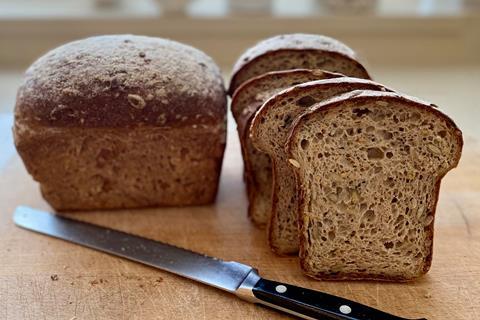
Britain’s Best Cake 2025 competition saw The Chocolate Cake with Pistachio & Berries by Sweet! Let’s Eat triumph in the Gluten Free category (and several more took home medals), while Sage Bakery’s Seeded Rustic Bread claimed the Gluten Free category trophy at Britain’s Best Loaf 2025 (and a few other gluten-free breads won medals).
Lastly, the UK’s top selling gluten-free bakery brand, Warburtons, followed up its Soft White Pittas – which were crowned Free From Product of the Year at the Baking Industry Awards 2024 – with new Soft Brown Pittas and a Seeded Tiger Bloomer hitting shelves earlier this month.
The bigger players
Many of the manufacturers are investing in capacity for NPD and in general. For example, Warburtons is currently in the midst of a three-year investment plan, Dr. Schär now has a UK factory to join its production operations in 10 other countries worldwide, and development bakers are also working hard on creating new gluten-free recipes at the likes of Finsbury Food Group, Genius Foods, Jones Village Bakery, and Mademoiselle Desserts.
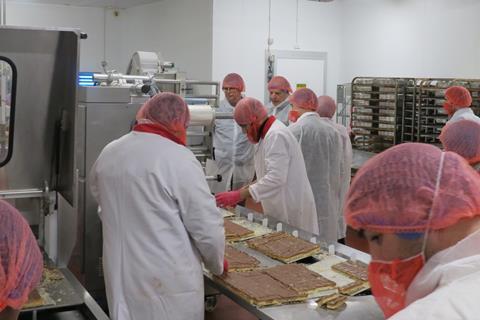
Here’s some highlighted information compiled on the aforementioned suppliers:
| Company | Site Location | Workforce | Product ranges | Notes |
|---|---|---|---|---|
|
Baker & Baker |
Ashington, West Sussex |
170+ |
Cakes, muffins, brownies, shortbread, yule logs, fruit slabs, and more |
Originally opened in 1999, the multi-unit site totalling 75,000 sq ft was converted into a gluten-free site in 2019. Over 30 tonnes of products are made per week, including own-label lines supplied to various supermarket retailers. |
|
Dr. Schär |
Bellshill, North Lanarkshire |
87 |
Loaves, flatbreads, brioche burger buns and more |
Allergen-safe facility free from all 14 major allergens was acquired in 2022 from GDR Food Technology, and has helped Dr. Schär’s UK division enjoy its most profitable year on record in 2024. |
|
Finsbury Food Group |
Pontypool, Torfaen |
130+ |
Artisan bread, sandwich loaves, morning goods, and seasonal lines |
Finsbury took over the site following its acquisition of gluten-free business Ultrapharm in 2018. Manufactures around six million items per year. |
|
Genius Foods |
Bathgate, West Lothian |
163 |
Breads, artisan breads, rolls, pancakes, crumpets, and muffins |
This 80,420 sq ft factory began operations in 2009. The company, which has headquarters in Ediburgh, also runs a site in Scunthorpe that produces its brownies, rocky roads, frozen pies, sausage rolls, and pastry lines. |
|
Jones Village Bakery |
Wrexham, Clwyd |
|
Bread, rolls, naans, pittas, pancakes, scones, croissants, and pastries |
Dubbed the ‘Nutrition Bakery’, this 70,000 sq ft factory in Wrexham Industrial Estate was opened in 2018 prior to the company establishing its main site and headquarters over the road. |
|
Mademoiselle Desserts |
Maidenhead, Berkshire |
43 |
Cakes, cheesecakes, loaf cakes, tarts, scones, pies, traybakes |
Opened Unit 1 (4,900 sq ft) in 2016, and Unit 2 (5,450 sq ft) in 2020. Manufactures products with sales value in excess of £8m per year, supplied to several major UK wholesalers. |
|
Warburtons |
Newburn, Tyne and Wear |
100+ |
Loaves, rolls, wraps, pittas, sandwich thins, brioche rolls, fruited buns, and crumpets |
Launched in 2011, it supports Warburtons’ claim to being the first big bakery brand to open a dedicated gluten-free site. |
The smaller players
Craft bakery firms may not have the economies of scale of their plant bakery comrades, but they can still create inspiring free-from items and build loyal followings among customers. In some ways, their diminutive size even holds an advantage.
“We’re not driven by trend cycles or layers of internal bureaucracy – we’re led by what our customers actually want,” says Griddle co-founder McGregor. “That means we can innovate faster, listen more closely, and stay true to our values without being bogged down by layers of decision-making. While larger players often focus on scale and efficiency, we focus on quality, transparency, and building genuine trust with our community.”
Smaller bakers could try focussing on specialism within the free-from arena, working with experts to identify innovative, niche ingredients that deliver on consumer demands for greater quality or health benefits. “This unlocks possibilities to go beyond relatively common claims such as added protein or fibre,” comments Helm at ACI Group. “For example, incorporating ingredients rich in polyphenols like Hytolive olive oil extract or Alvinesa grape extract enables brands to make compelling science-backed heart health claims.”
Foodservice operators are particularly challenged in trying to offer a gluten-free bakery selection, as these need to be kept wrapped to avoid cross-contamination with glutenous products. Edwards at Baker & Baker reveals that some bakeries in Europe are choosing to display free-from products unwrapped with ‘low in gluten’ labelling. “It’s an interesting way of appealing to those that choose to avoid gluten for dietary preference,” he adds.
As the free-from category matures and reaches new levels of quality and innovation, UK bakers will need to carefully communicate claims, balance price, and deliver indulgence to make the most of the opportunity.
ADVERTISEMENT: FINSBURY FOOD GROUP
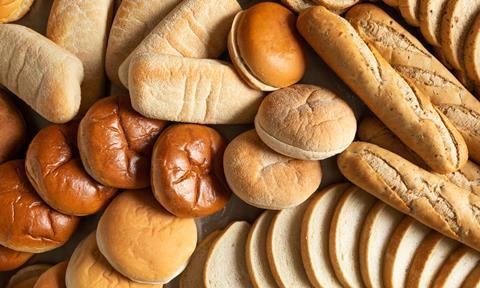
Finsbury Food Group is a major force in gluten-free bakery, with a dedicated facility- Ultrapharm- producing a wide range of artisan-style breads and morning goods. From loaves and crumpets to pastries and brioche buns, the factory specialises in high-quality, gluten-free alternatives that feel just as premium as their standard counterparts.
The category itself is thriving, with gluten-free bread and morning goods up 8.9% in value and 7.8% in volume year-on-year. Consumer expectations have shifted away from ultra-processed, vacuum-packed products towards bakes that look and taste authentic.
NPD plays a big role in growth, with major retailers investing in exclusive seasonal ranges and expanding flavour profiles. Backed by a specialist NPD team, Finsbury continues to lead through innovation, ensuring every gluten-free launch meets the same high standard as traditional bakery, without compromise. With quality at the heart, Finsbury’s approach is helping to reshape what shoppers can expect from Free-From.



















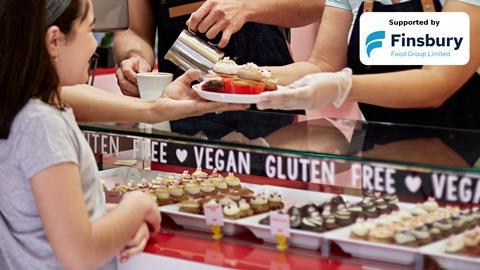


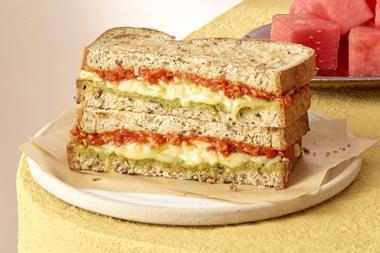
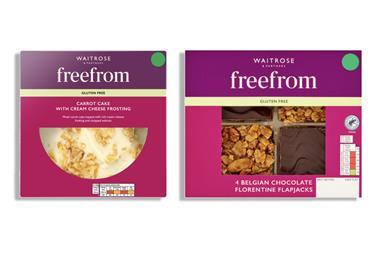
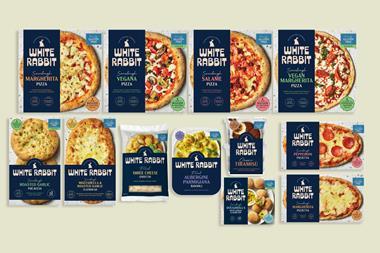
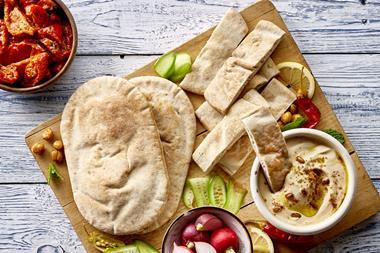





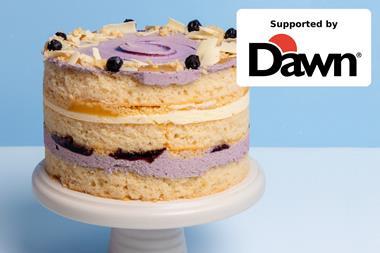

No comments yet